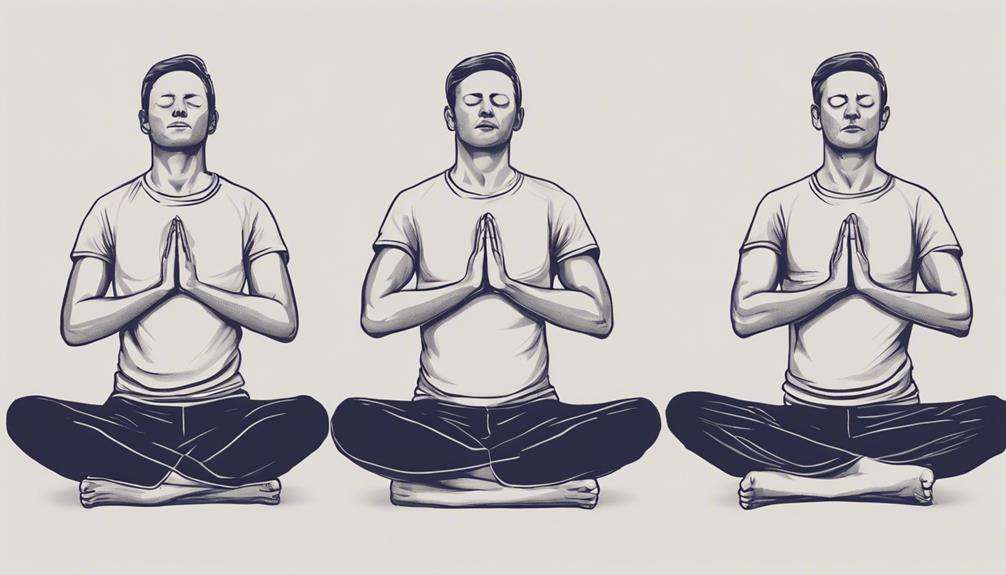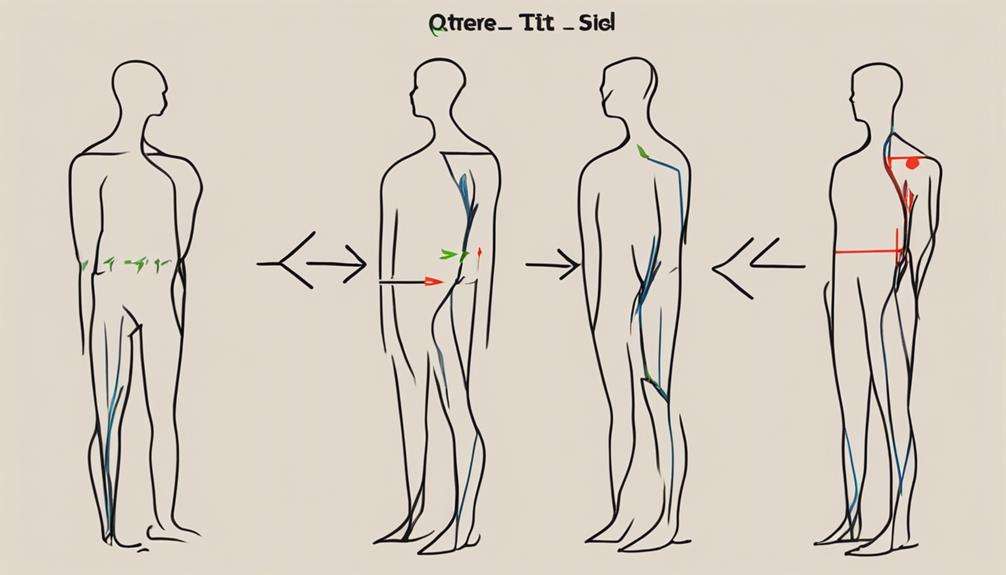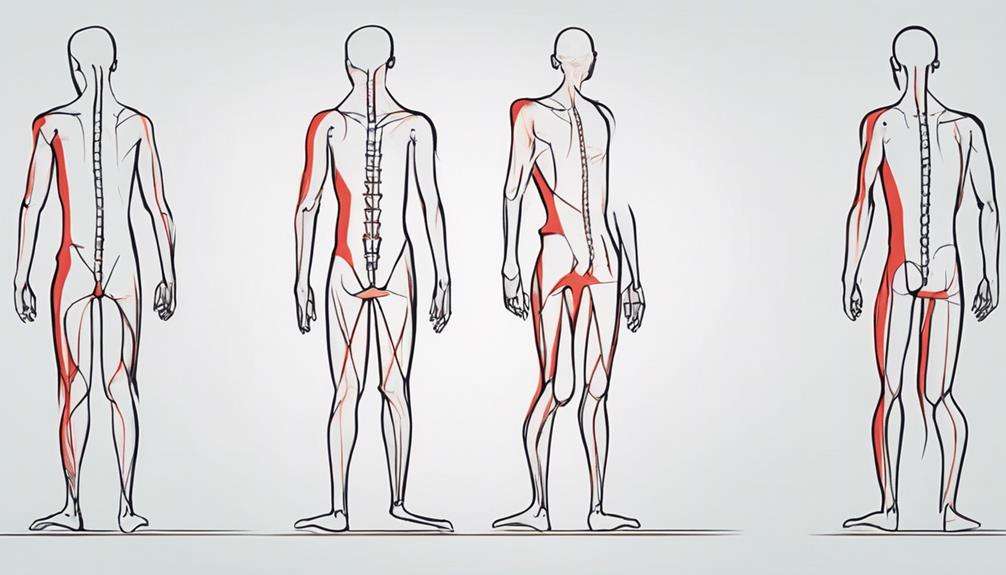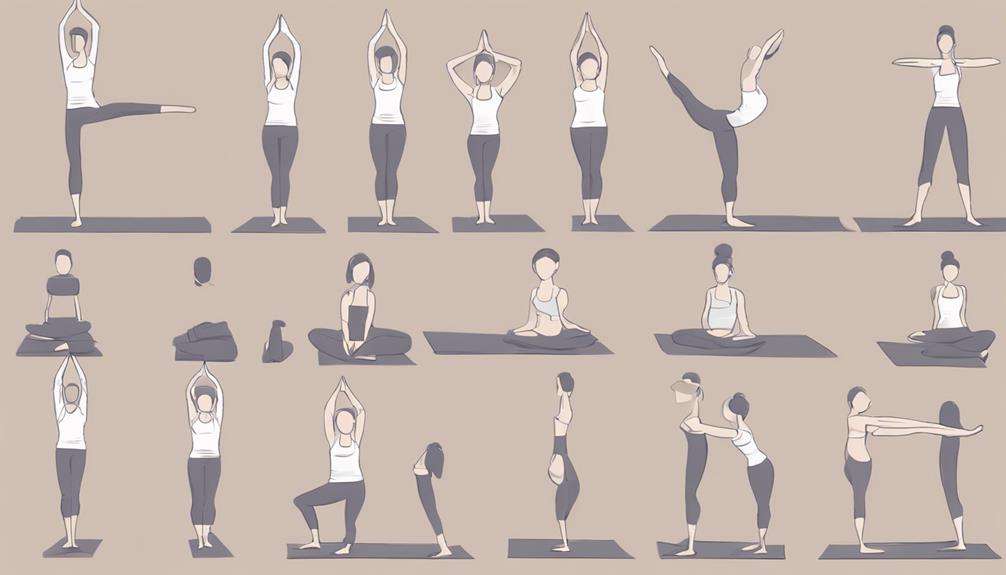Did you know that approximately 80% of adults experience lower back pain at some point in their lives?
Understanding how to optimize spinal health through mindfulness and movement can notably impact your overall well-being. By incorporating mindful practices and specific movements into your daily routine, you can proactively strengthen your spine, improve posture, and prevent future spinal issues.
Let's explore how simple yet effective strategies can enhance your spine health and quality of life.
Key Takeaways
- Mindfulness practices like yoga enhance spinal flexibility and posture.
- Strengthening core muscles through mindful movement supports spine health.
- Regular low-impact exercises improve balance and prevent spinal issues.
- Combining mindfulness techniques with physical activity optimizes overall well-being and spinal health.
Importance of Spine Health
Understanding the importance of spine health is paramount for maintaining overall well-being and functionality in daily life. Your spinal health is directly linked to various aspects of your well-being, including mental health, hormone balance, energy levels, quality of sleep, and even headaches.
The spine plays a vital role in daily movements, balance, posture, and most importantly, in protecting your spinal cord and nerve roots. To optimize your spinal health, regular movement and exercise are key components. Exercise helps strengthen the muscles supporting the spine, improving flexibility and reducing the risk of injuries.
Additionally, mindfulness practices such as meditation can aid in managing chronic pain often associated with spinal issues. By incorporating mindfulness into your routine, you can promote a positive outlook and better pain management. Proper nutrition, adequate rest, and seeking chiropractic care when needed also contribute significantly to supporting spine health and alignment.
Prioritizing your spinal health through mindful practices and movement is essential for a healthier and more functional life.
Benefits of Yoga for Spinal Health
Enhancing spinal health through the practice of yoga offers numerous benefits such as improved flexibility, strength, and posture. Yoga is a pivotal approach to spinal health that can aid in preventing and managing conditions like back pain and spinal cord injuries. The specific poses and movements in yoga help increase flexibility in the spine, promoting better range of motion and reducing the risk of injuries. By engaging in regular yoga practice, individuals can strengthen the muscles supporting the spine, which is essential for maintaining proper alignment and reducing strain on the back.
Additionally, yoga encourages mindfulness through focused breathing techniques, which can help alleviate stress and tension that may contribute to spinal issues. This mindful approach promotes relaxation and reduces inflammation, creating a more conducive environment for spinal health. Additionally, yoga is a low-impact exercise that improves balance and enhances core stability, further supporting the spine and overall body alignment. Incorporating yoga into your routine can lead to better posture, increased strength, and improved spinal health for long-term well-being.
Improved Posture

How can proper posture positively impact your spinal health and overall well-being?
Maintaining good posture plays an essential role in optimizing spinal health by enhancing spinal alignment, which in turn reduces strain on the neck and back muscles. By practicing proper posture, you can promote better breathing, circulation, and overall body function. Mindful movement techniques are effective in correcting postural imbalances and preventing spinal misalignments, contributing to a healthier spine.
Strong core muscles are essential for supporting proper posture, as they help reduce the risk of back pain or injuries. When you prioritize good posture, you not only improve your physical function but also exude a confident and empowered physical presence. Consistently practicing mindful movement to improve your posture can have long-lasting benefits for your spinal health and overall well-being. Remember, your posture not only affects how you feel physically but also influences how you present yourself to the world.
Strengthening Core Muscles
Maintaining proper posture not only benefits your spinal health but also lays the foundation for strengthening core muscles to support your spine and enhance overall stability during movements. Important core muscles play a significant role in promoting spine health and reducing the risk of back pain. By engaging in specific core-strengthening exercises such as planks, bridges, and Russian twists, you can effectively target and strengthen the muscles surrounding your spine. These workouts not only enhance your core strength but also improve your balance and posture, contributing to better overall body alignment.
Regularly incorporating core-focused routines into your workout regimen is key to preventing spinal issues and reducing strain on your back muscles. Strong core muscles provide the necessary support to your spine, allowing you to move with greater ease and stability. By prioritizing core strengthening exercises, you can actively contribute to optimizing your spinal health and minimizing the likelihood of experiencing discomfort or injuries related to poor posture or weak core muscles.
Preventing Spinal Issues

Regular physical activity and targeted exercises play an important role in preventing spinal issues and maintaining peak spine health. Strengthening your back, hamstrings, and abs through activities like yoga and pilates can greatly help in preventing spinal problems. It's recommended to include at least 30 minutes of daily physical activity in your routine to support spine health and reduce the risk of issues. Opting for low-impact exercises such as swimming can also provide excellent support for spinal health and overall well-being.
In addition to physical exercise, incorporating mindfulness and meditation practices into your daily routine can aid in managing chronic pain, supporting spine health, and promoting a positive outlook. Taking a holistic approach by combining physical activity with mindfulness techniques can enhance your overall well-being and contribute to a healthier spine. By creating a personalized program that includes both exercise and mindfulness, you can effectively prevent spinal issues and improve your quality of life.
Frequently Asked Questions
How Can I Improve My Spine Health?
To improve your spine health, focus on posture correction, core stability, flexibility training, weight management, ergonomic workspace setup, daily movement, stress reduction, yoga practice, proper lifting, and regular stretching. These practices promote overall well-being and long-term spinal health.
How Do You Strengthen Spinal Ligaments?
To strengthen spinal ligaments, focus on exercises that target core stability and back muscles. Engage in routines that include yoga poses, Pilates movements, and resistance training. Maintain proper posture and gradually increase intensity for best results.
How Does Meditation Help Back Pain?
Meditation aids back pain by fostering relaxation, reducing muscle tension, and boosting blood flow. Mind-body connection enhances pain management. Stress diminishes, pain perception is altered. Mindful movement, breath awareness, and healing thoughts are tools for spine alignment and overall well-being.
What Foods Are Good for Your Spine?
To support spine health, focus on a nutrient-rich diet with anti-inflammatory foods like fish and leafy greens. Include calcium sources such as dairy, prioritize Omega-3 benefits from nuts, and maintain hydration for overall well-being.
Conclusion
To sum up, the study on optimizing spinal health through mindfulness and movement highlights the importance of incorporating yoga into daily routines for better spine health.
For example, Sarah, a participant in the blended program, saw significant improvements in her posture, core strength, and reduction in back pain after just a few weeks of consistent practice.
This shows the positive impact that mindful movement can have on overall spinal health and well-being.






